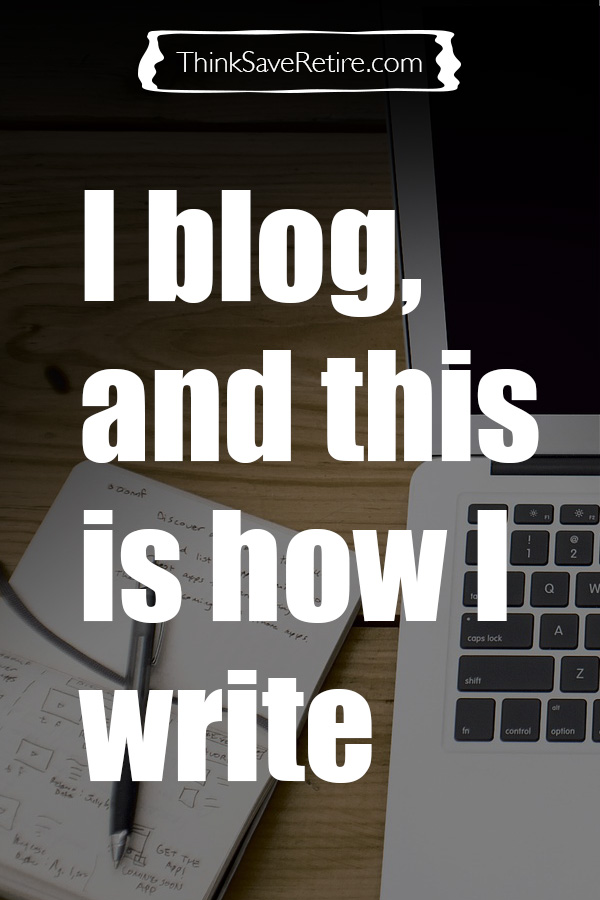My #1 tip for blog writing on the web
I am far from a perfect writer, but over the years I have learned a thing or two about blog writing. Enjoy the experience. Keep it simple.

I am far from a perfect writer, but over the years I have learned a thing or two about writing for an online audience, and virtually every technique a good blog writer follows adheres to a very simple, yet profoundly meaningful, truth.

Remember: We have the attention spans of goldfish.
Actually, our attention spans are worse than goldfish according to a study published by the Telegraph in March. We don't read. We scan. We ruthlessly pick and choose the content we want to read. We do this with books, magazines, newspapers as well as web sites. We also do this with TV shows, sports and movies.
Why? Because smartphones. And television. And ads. And social media. Fingertip technology continues to push our ability to focus further down, approaching nothingness. After all, most of us are looking for something different and unique, not more of the same old stuff. And we don't want to wait very long before finding it.
And within this truth lies the basis for how to write for the web without wasting your time or the time of your reader.
My #1 tip for blog writing on the web
Enjoy the experience and love what you do! Yes, it's true that writing effective blog posts depends almost entirely on your target audience and how they read online - and your own natural strengths as a writer. But, don't over think it. Enjoy it. For example, if you are good at writing long, 3,000-word posts, do it! Or, if you'd rather write shorter, 500 to 600-word entries, that's cool too.
After all, finding a way to enjoy the experience of writing is ultimately what's going to make your blog successful. If you love the subject you're writing about, it shows in your final product.
My technique is to use some of the observations from my experience blogging and mesh them up with my natural tendencies as a blogger. I want my blog posts to be as entertaining as possible, both to read and to write. I spend a hell of a lot of time writing for this blog, so if it's not entertaining for me, then I'm prepared to sail off into the sunset and close down the blog. Life's too short to spend time doing something that is not enjoyable (umm...jobs?).
This means I don't write long posts anymore. In fact, anything longer than about 1,500 words is really starting to push it. While I will have some readers who will take the time to read that much content, most simply won't. And, I don't get natural enjoyment out of publishing voluminous posts, either. I want my stuff to be short and sweet - and entertaining. Most will skim it anyway.
And I don't blame readers for skimming, either. Our time is limited and glancing over text gives us the ability to pick out important concepts from the writing and mentally piece things together. And let's face it - a lot of text in writing is filler and can be easily removed. Admittedly, I skim online all the time. The easier text is to skim, the more likely it is that I will read it...and come back for more.
And so, I write scannable text. This includes the use of sub-headings (the <h2> tag), bolded and italicized text and I recently started incorporating bold + underline and underline + italics. Cause...why not? It looks good and is easy to pick out. It makes scanning my content easy. Why fight it?
I also like to keep my paragraphs small. I hate, hate, hate reading huge paragraphs of text. Anything over, say, three or four sentences is too big for me. I would much rather separate my thoughts out into separate paragraphs than keep expanding a bloated collection of sentences that kinda resembles a coherent thought into something even larger, and it greatly improves readability.
Also, I don't mind starting paragraphs with the word "also". Or "but". Or "and". This isn't conventional wisdom, but I don't care - I write like I talk.
And that's another tip. Don't have the thesaurus open when you're writing a blog post (I used to do that, too). A conversational style of writing is far easier to read than a post filled with larger or more uncommon words. And try to make sure that the message you're trying to deliver through your blog posts is easily readable. If you find some issue in your writing, don’t hesitate to get help from an advanced tool. Using an online paraphrasing tool; will do the trick. It will replace rarely used words with their more common synonyms. And it can also make the content clear and concise for you, which the audience will surely appreciate.Use the fewest number of words possible to get your point across. It helps with your blog post length, too. Seriously, write like you talk. Lose the academic big-word B.S.
Oh, and I don't capitalize each word in a heading. Again, this goes against conventional wisdom, but I find that headlines are easier to read when each word is not capitalized. I like to design my headlines as if they were sentences, only in a larger font.
Lastly, Search Engine Optimization is generally low on my priority list. I haven't written a single blog post designed only to generate SEO traffic and probably never will. I am not concerned with exactly what the latest study says. I am focused only on writing quality and entertaining content that I give a shit about (but not too many shits!). That's my style.
In the end, I keep it simple. I don't overanalyze. I just write. I sometimes cuss. I sometimes get negative. I write based on how I feel at the moment, not from underneath the confines of an "official blog style" or popular opinion that I feel determined never to break.
And I thoroughly enjoy the process of writing, and I can only hope it comes across!
Blogs I dig
There are several examples of blogs around the Internet that I thoroughly enjoy reading due to the style of writing from the blogger. The writing is conversational. It doesn't come across as the same old tired newspaper or magazine prose. These bloggers write in everyday easy-to-read language - which is right up my alley!
- MarkManson.net - I totally dig this guy; I'm practically hung on every blog post he writes even if I'm not particularly interested in the subject. He has an incredible style of writing that resonates with me, and I learn something every time I read a post from him.
- LivingAFI.com - This guy is a natural writer. I read his The Job Experience posts and literally couldn't wait to read the next one. He's a badass writer, very smooth with language by choosing words that roll right off the tongue. He's a natural author.
- NerdFitness.com - Steve's a nerd, but he also writes about unique ways to level up our fitness and get into the best shape of our lives. And best of all, he writes epically well. His posts are insanely scannable, lots of headlines, bolds, links and graphics. He writes conversationally.
- JamesAltucher.com - James writes about everything and uses incredibly straightforward language to do it. He writes as if you were having a conversation with him over a beer - or three. He's the kind of guy who gets his point across quickly and effectively. The anti-rambler.